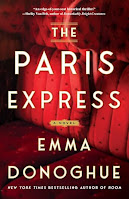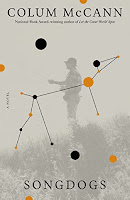Subtitle: The Politics of the Enlightenment and the American Founding
Darren Staloff, Ph.D., a historian at the University of Florida, considers three prominent Founding Fathers in Hamilton, Adams, and Jefferson. He takes up each with reference to their role in the founding of the United States, and with reference to each other. Using their own writings and extensive quotes from contemporary and later sources, he paints an extensive and even-handed portrait of each. Steeped in the thought and politics of the time, these in-depth sketches immerse the reader in the personality and the grand achievement of each. They will round out your understanding of each in grand if unblinking style.
In grossly broad strokes, mainstream Enlightenment thought rejected any appeal to the supernatural or divine revelation. This trend brought into common thought a disenchantment with the idea that the world was run by force of some supreme being, and contemplated instead, the natural forces which one could observe and test.
Continuing broadly, Hamilton used a superior mind and indefatigable energy to push through his vision of a strong central authority, with a central bank, a very active commercial market, and government investment in infrastructure. In his view these would together generate wealth and plenty for the new nation. This was at a time when the new country was overwhelmingly agrarian in nature, both in output and civic vision. Obviously his program ultimately carried the day.
Adams was a brilliant, sometimes prickly, always vain but honest statesman and politician, whose vision for the new Constitution was enacted in its entirety. I believe that any sharing of this credit, by any other contemporary thinker or Founding Father is illusory, and simple myth-building. Plain wrong.
Jefferson’s gift for lofty language created a grand American myth; his phrasing has inspired foreign revolutionary zealots and American schoolchildren alike. His presidency failed, however: the Embargo Act plunged the new nation into its first deep depression, and produced none of the desired results of projecting nascent American power internationally. In addition, his questionable parochiality about the slavery question, and his hare-brained scheme for solving it did nothing to prevent or forestall the bloody sectional conflict to come. In fact, it helped assure that the conflict would come.
As a history of the period, and three of its principal and most influential actors, this book is thorough and balanced — excellent.


































